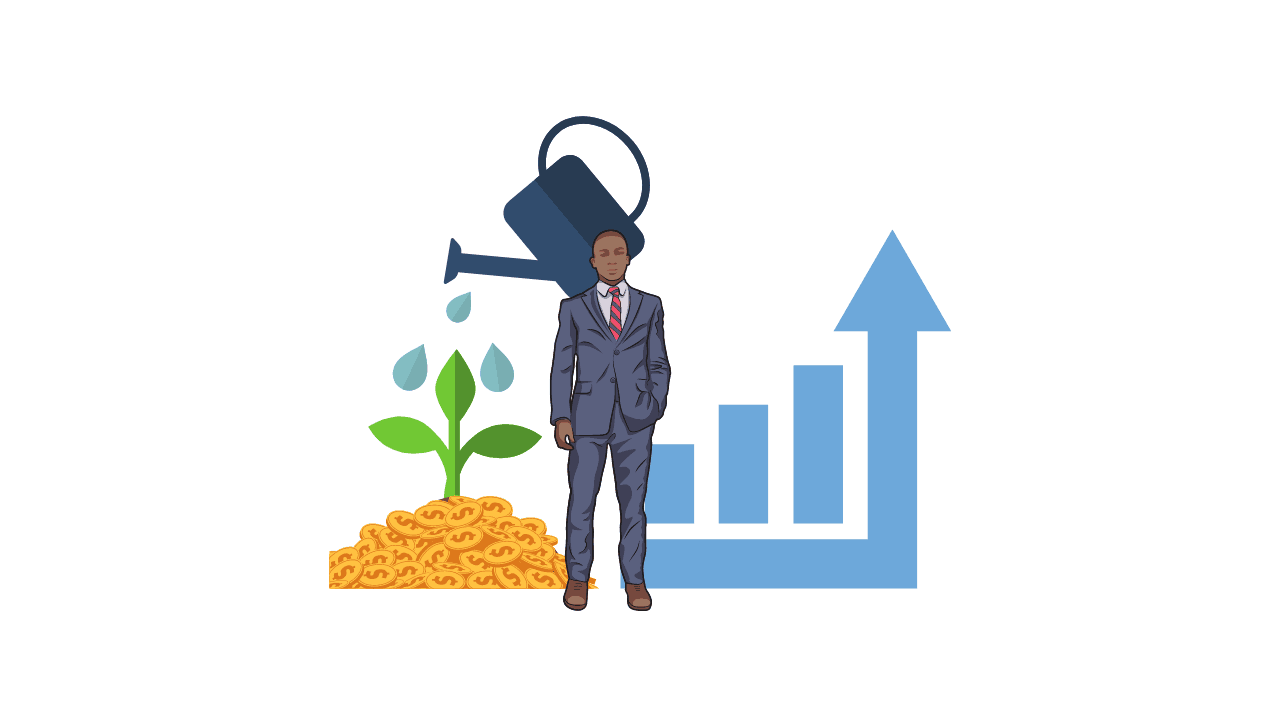Librarians are people of high intellect that encourage learning at all levels. This career allows you to relate with people and utilize what you have learned daily at work.
Librarians have been the gatekeepers of knowledge for centuries, playing a critical role in preserving, organizing, and disseminating information to support education, research, and community engagement.
In the ever-evolving digital age, the role of librarians has expanded beyond traditional bookshelves to include digital resources, online databases, and information literacy.
If you are passionate about books, technology, research, and helping others, a career in librarianship may be the perfect fit for you.
This blog post aims to provide a comprehensive guide to becoming a librarian.
Whether you are a recent graduate exploring career options or a professional looking to make a career change, this guide will walk you through the essential steps, requirements, and skills needed to embark on a rewarding career in librarianship.
From obtaining the proper education and training to navigating the job search process, we will cover the critical aspects of becoming a librarian in today’s dynamic information landscape.
So, if you are intrigued by the prospect of being a keeper of knowledge, an information guide, and a facilitator of learning, read on to learn how to pursue a fulfilling career as a librarian and beyond.
What is Librarianship?
Librarianship is a multifaceted profession that involves managing and providing access to a wide range of information resources, assisting users in finding and evaluating information, promoting literacy and lifelong learning, and supporting research and education.
Librarians work in various settings, including public, academic, school, special, and corporate libraries.
Who is a Librarian?
The role of librarians has evolved significantly over the years, reflecting changes in technology, user needs, and the nature of the information.
As a librarian, you will manage library collections, catalog and classify materials, assist users in finding and evaluating information, develop and implement library programs and services, provide reference and research assistance, and promote information literacy skills.
You may also be involved in outreach and community engagement, collaborating with other professionals, and staying up-to-date with emerging trends and technologies in the field of librarianship.
In addition to the traditional responsibilities, librarians today also serve as advocates for intellectual freedom, diversity, and inclusion.
They work to create an inclusive and welcoming environment in libraries that respects users’ diverse needs and interests and ensures equal access to information and resources for all community members.
Librarians also play a vital role in promoting lifelong learning, literacy, and cultural enrichment, contributing to their communities overall well-being and development.
Is Librarian a Good Career Path?
Librarian may not be one of the most attractive jobs in the world; however, it is still a good career path.
The work environments of librarians are quiet and serene, and excellent air conditioning systems make the place super-comfortable.
Also, librarians enjoy high job security and can decide to work in one place for a long time without worrying about getting fired.
This job will allow you to meet new people daily and develop good relationships.
Additionally, as a librarian, you are responsible for determining how your day will go, allowing you to do other things even while on duty.
This job also offers an excellent work-life balance, and the physical burden that comes with most jobs is almost non-existent for librarians.
Becoming a librarian will allow you unrestricted access to loads of academic materials. Sometimes, you can access expensive online courses without paying a dime.
What are the Roles of a Librarian?
Librarians are professionals that coordinate everything that goes on in a library and provide academic materials to people that visit.
They plan for and select new library materials such as audiotapes and books. Librarians also groom and instruct library technicians on what to do and other staff that work for the library.
The work environment of librarians is not subjected to public libraries alone, but librarians can also be found at universities, hospitals, private companies, museums, and other establishments.
How Long Does it Take to Become a Librarian?
The duration it will take for you to become a librarian solely depends on your professional goals.
If you want to become a librarian with a bachelor’s degree in library science, you will only spend three to four years at the university.
On the other hand, if you decide to obtain a master’s degree after a bachelor’s degree, at least one year or so of your time will be required to complete such a program.
How To Become a Librarian
1. Obtain a master’s degree in library and information science (MLIS) or a related field from an accredited college/university.
2. Consider specialized degrees, such as a master’s in archival studies or a master’s in library science with a concentration in a particular area.
3. Look for MLIS programs at universities and colleges that cover various aspects of library and information science, such as information organization and retrieval, reference and research services, collection development and management, cataloging, and classification, digital libraries, information ethics and policy, and library administration.
4. Gain practical experience through internships, practicums, or part-time jobs in libraries or related settings.
5. Participate in continuing education and professional development opportunities, such as workshops, conferences, and online courses, to stay updated with emerging trends and technologies in the field.
6. Consider obtaining professional certifications in specialized areas, such as Certified Public Librarian (CPL) from the Public Library Association (PLA) or the Medical Library Association (MLA) certification for medical librarians.
7. Stay updated with best practices, tools, and techniques in library and information science through professional development.
8. Enhance professional credibility by obtaining relevant certifications.
9. Network with professionals in the field through internships, jobs, workshops, and conferences.
10. Stay current with emerging trends and technologies in library and information science through continuing education and professional development.
Detailed Explanation on How to Become a Librarian:
1. Make up your mind on the specialty of Librarian you desire to focus in:
There are several specialties of Librarian out there; it is a great thing to decide on the librarian specialty you desire to focus on before even attending college.
This will enable you to focus your education on your specialty and acquire skills that are relevant to your preferred specialty.
For instance, if you desire to become a technical services librarian, you must develop your administrative skills, while aiming to become a public librarian requires good customer service skills.
2. Complete a bachelor’s degree:
Immediately after you have chosen a specialty, proceed and enroll in a bachelor’s degree.
Completing a bachelor’s degree program will boost your odds of getting admission into an excellent graduate program, and you will also be better prepared for it.
Although, as an aspiring librarian, you can pick any major, it is better to enroll in a degree program connected to the librarian specialty you want to focus on.
For instance, obtaining a bachelor’s degree in computer science will make more sense if you want to become a technical librarian.
3. Get a master’s degree:
Obtaining a master’s degree can open you up to better professional opportunities. There are even some librarian specialties that you cannot focus on if you don’t have a master’s degree.
A master of library and information science degree is one of the best master’s degrees that any aspiring library should have.
However, no matter the master’s degree program you choose to enroll in, ensure it is accredited by the American Library Association (ALA).
Above all, make sure that your choice aligns with your professional goals.
4. Obtain relevant work experience
Acquiring relevant work experience is a great thing to do if you want to excel as a librarian.
You can achieve this by taking up an entry-level job at a library. Most schools offer up entry-level opportunities at their library.
But, if you don’t want to as a part-time library assistant at a school’s library, you can apply to work as a library trainee at a local library nearby.
Working in a library will help you build professional connections and discover career development prospects.
5. Obtain a license
You need a license to work as a librarian in any state of the United States. The requirements for librarian licensure vary according to state.
Nevertheless, you must review your state’s requirements to know whether you qualify for a license.
6. Acquire professional certifications
Acquiring professional certifications as an aspiring librarian will speak well. It showcases your level of knowledge and skills in this profession.
If you are aiming to acquire a voluntary certification as an aspiring librarian, here are two options to look at:
7. Certified Public Administrator
The Certified Public Administrator is supported by the American Library Association (ALA).
This certification is ideal for librarians with less than three years of experience seeking to develop their leadership potential.
However, to receive the Certified Public Administrator certification, you must pass a rigorous exam focusing on nine different aspects of librarian knowledge.
8. Library Support Staff Certification
The Library Support Staff Certification is offered by the American Library Association (ALA). It is an ideal certification for educational and public librarians.
It is highly recommended for librarians that don’t have a Master of Library Science degree. This certification covers three areas of knowledge; team communication, library science, and technology.
What is the Average Annual Salary of a Librarian?
The average annual salary of a librarian is about $55,000 per annum.
However, the salary of librarians can differ according to experience, academic qualification, library specialty, location of work, and place of employment.
Essential Skills To Become a Librarian
Librarians require a diverse skill set to effectively carry out their roles and responsibilities. Here are some essential skills that aspiring librarians should develop:
1. Information Literacy:
Librarians must be proficient in locating, evaluating, and using information from various sources, including print and digital resources.
They must be skilled in research techniques, database searching, and information organization.
2. Communication Skills:
Effective communication is critical in the library profession. Librarians must be able to communicate clearly and professionally with patrons, colleagues, and other stakeholders.
This includes verbal communication, written communication, and active listening skills.
3. Customer Service:
Librarians often work directly with patrons, assisting, answering questions, and resolving issues.
Excellent customer service skills, including patience, empathy, and professionalism, are essential in creating a positive experience for library users.
4. Technology Skills:
Libraries increasingly incorporate digital resources, technologies, and tools into their services.
Librarians must proficiently use library management systems, digital databases, online catalogs, and other technological tools relevant to their specific library setting.
5. Organization and Time Management:
Librarians must effectively manage their time and resources, prioritize tasks, and keep track of multiple projects simultaneously.
Strong organizational and time management skills are crucial to ensure smooth library operations and efficient service delivery.
6. Collaboration and Teamwork:
Libraries often require collaboration among library staff, departments, and external partners.
Librarians should be able to work effectively as part of a team, contribute to group discussions, and collaborate with others to achieve common goals.
7. Flexibility and Adaptability:
Libraries are dynamic environments with changing technologies, trends, and user needs.
Librarians must be adaptable and open to change, willing to learn new skills and adapt to evolving library practices and technologies.
8. Cultural Competence:
Libraries serve diverse communities with varying cultural backgrounds, languages, and information needs.
Librarians must be culturally competent, respectful, and inclusive in interacting with patrons and colleagues from diverse backgrounds.
9. Professional Ethics:
Professional ethics and principles, such as confidentiality, privacy, intellectual freedom, and equitable information access bind librarians.
Librarians must adhere to these ethical standards and demonstrate integrity and professionalism.
What is the Job Outlook for a Librarian?
According to the United States Bureau of Labour Statistics, librarian job openings may increase 6% between 2021 and 2031.
This means about 15,000 new professional opportunities will be available for librarians by then.
What is the Cost of Becoming a Librarian in the United States?
The average cost of completing a library program in the United States is about $100,000 at the rate of $25,000 per year.
These expenses will rise even higher if you enroll in a master’s degree program after a bachelor’s degree program.
On the other hand, opting for an online school is an ideal way to cut down the expenses involved when obtaining a librarian degree. Online school also helps you to study at your convenience wherever you are.
Frequently Asked Questions About Becoming a Librarian
To become a librarian, you typically need a master’s degree in library science (MLS) or a related field from an accredited institution. Some positions may require additional qualifications, such as a second master’s degree or specialized certification.
Gaining practical experience is crucial to building a successful career in librarianship. You can gain practical experience through internships, practicums, or volunteer opportunities at libraries or related organizations. These opportunities can help you develop practical skills, gain exposure to different types of libraries, and build a professional network. It’s also a great way to explore different areas of librarianship and determine your career interests.
If you desire to reach the pinnacle of a librarian career very fast, obtain a Master’s degree in Library Science (MLS).
In addition to traditional skills such as information literacy, cataloging, and reference services, librarians must possess diverse skills to thrive in today’s information landscape. Some essential skills for librarians include digital literacy, data management and analysis, technological competency, interpersonal and communication skills, project management, and cultural competence.
Librarians have various career opportunities in various types of libraries, including academic, public, school, unique, and government libraries.
The best courses for librarians are library science courses.
The best librarian courses are Associate of Arts in Library Information Technology and Associate of Science in Library/Information Technology.
Conclusion
Librarian is a decent career pathway. This job offers many opportunities for self-development, and the flexibility that librarians enjoy makes it even more enticing.
This post has done well to outline the steps for becoming a librarian in the present day, in addition to other valuable details.
However, to succeed as a librarian, make sure that you develop good communication, organization, research, and technology skills.
On the other hand, becoming a librarian requires education, training, and essential skills.
It’s a rewarding profession that is vital in facilitating access to information, promoting literacy, and supporting lifelong learning.
Aspiring librarians should follow a systematic approach that includes obtaining the appropriate education and credentials, gaining practical experience through internships or volunteer opportunities, building a solid professional network, and continuously developing their skills.
In today’s evolving information landscape, librarians must adapt to changing technologies, user needs, and societal trends.
They must stay updated with the latest developments in the field, embrace digital resources and technologies, and continually improve their skills to serve their communities effectively.
Awesome one; I hope this article answers your question.
Editor’s Recommendations:
- How To Become A Therapist Without A Degree (Career, Tips)
- How to Become a Personal Shopper (Meaning, Duties, FAQs)
- How To Become A Midwife Without A Nursing Career (FAQs)
- How to Become a Property Developer
- How To Become A Music Producer (Career, Steps, Salary)
- How To Become A CIMI (Certification, Cost, FAQs)
- How To Become A Boat Mechanic (Steps, Skills, FAQs)
If you find this article good, please share it with a friend.





